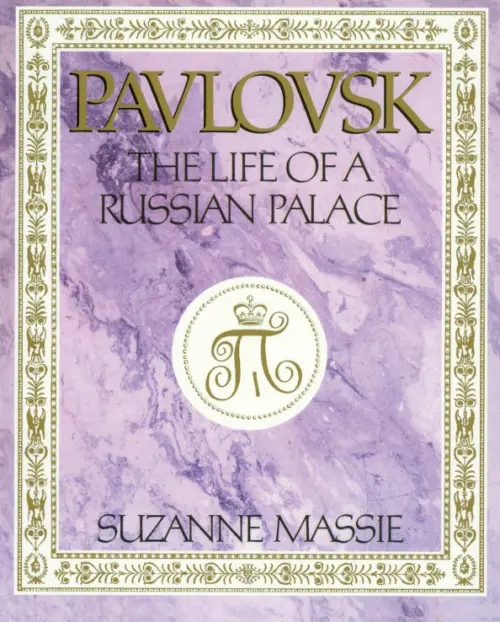
Pavlovsk: The Life of a Russian Palace
Like the rings in a tree, two centuries of turbulent events have left their imprint on the history of the palace at Pavlovsk. In this, her first book since her classic Land of the Firebird, Suzanne Massie uses this history as a lens to look deeply into the soul of successive periods revealing the heights of hope and the depths of horror in the larger than life size to be found only in Russia. Pavlovsk is a riveting true story of passions and people - as gripping as a novel, exciting as a spy thriller. The story begins in the lavish late 18th-century court of Catherine the Great who gave the land where this magnificent palace was built to her unhappy son Paul and his young wife Maria Feodorovna. Paul, one of the most enigmatic and quixotic of tsars - assassinated a few years after he became Emperor - nevertheless managed to win and hold the love of one of the most beautiful and talented of tsarinas. Together they had ten children, among them four daughters who became queens and two sons who became tsars, the great Alexander I, conqueror of Napoleon and Nicholas I, the "Iron Tsar". Maria Feodorovna, a woman of uncommon taste, working with the best architects and artisans of her day, made Pavlovsk an encyclopedia of all the ideas of beauty of Russia's golden age. The saga sweeps the reader through the revolution, when the palace was narrowly saved from ravaging Red Guards by a group of art lovers - only to fall a few years later into the brutal hands of the Nazis and the Gestapo - through the heroic seige of Leningrad to the eventual miraculous restoration of this unique palace by a group of heroic Russian museum workers and artists. In the early and more peaceful chapters, the book will surprise Western readers by its picture of the Russian assimilation of artists, architects, and artisans who flocked to St. Petersburg from all over Europe when this city outdid Paris, Rome, and London as the place to go in search of new opportunities for creative work. In later chapters, which read as suspensefully as any detective story, Massie describes how a doggedly perseverent curator followed the retreating Nazi armies, locating plundered art works all along their path to Berlin itself, and the incredible story of how more than 70000 shards of wood, molded plaster, and scraps of burnt fabric were deciphered to reconstruct the beauty after the palace and everything that was in it had been put to the torch. The stubborn determination of thousands of ordinary Russians not to let their history and culture die, despite war and the dead hand of Communism on their land, is one of the most inspiring stories of the triumph of the human spirit in our time. Massie's Pavlovsk, acclaimed as one of the best and most exciting cultural histories of recent years, provides important insights into the challenges facing Russia today. Pavlovsk is a parable of the creation, deconstruction, and recreation of a culture - essential reading for anyone who wants...



 Каталог товаров broE.ru
Каталог товаров broE.ru